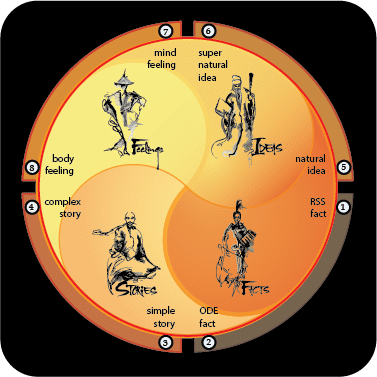What is The Placebo Effect?
My first instinct, when I was sent this question, was just to pass. I try to avoid topics immersed in beliefs religiously rooted in poorly researched science. Even a quick survey of the answers posted shows this topic is one of those. Placebos are said, without question, to be “sham substances or treatments which have no known therapeutic value.”
Ironically, in many cases, placebos “help.” Strangely, not one person responding to this question has expressed scientific curiosity as to why this help occurs. Nor has any properly-researched science explaining this effect been offered here. Late twentieth century materialism prevails yet again. If it isn’t physical, it can’t be real. Or as Sebastian Sung wrote, “It’s neurons all the way down,” meaning, there is no soul, no spirit, no actual mind.
What happens to us when we stand in a gallery in the Louvre and feel moved to tears by beauty? Or look into a baby carriage, at a smiling six month old, and walk away over-filling with joy? Or taste the first mouthful of white goat-cheese covered pasta, sitting in the plaza, facing the Pantheon, in Rome? Or feel surprised by the brilliance of a never-before-thought-of question being asked by a curious five year old?
How about the experience we call, “falling in love?” Isn’t this the placebo effect? Surely the belief that we’ve found our soulmate doesn’t hold up over time. What was it that we felt then? Was this just one of life’s sugar pills? Or is it something far more important? Something science avoids talking about, because traditional science eschews investigating experiences we can’t explain in physical terms?
How about when we’re told the Prozac takes 4 to 6 weeks to be physically helpful, yet as I’ve often seen in my patients, it helps in days? Isn’t this the placebo effect and if so, does this invalidate the relief the suffering person feels? Would it be better to convince this person that this effect isn’t real and so, doesn’t matter? I, for one, think not.
Try sitting across from a person who hasn’t felt hope for years, then imagine taking this hope away.
I openly admit, I do not understand the placebo effect. Unlike most people, though, I long to understand what’s behind these and so many more of life’s most exquisite moments. Given time to consider it further, I think most of these moments have much in common with the so-called “placebo effect.” Should we consider these moments to not be real?
Again, I, for one, think not.
My point?
Don’t mistake a particular use case (testing medicine) for a general truth about life. Inspiration, curiosity, and intuition are the heart and soul of all true scientific endeavors. They, too, could each be considered the placebo effect. Indeed, in far too many cases, these topics get treated as off-limits for proper scientific investigation.
Imagine what we’d gain if we truly understood inspiration? Curiosity? Intuition? I, for one, long for that day.
